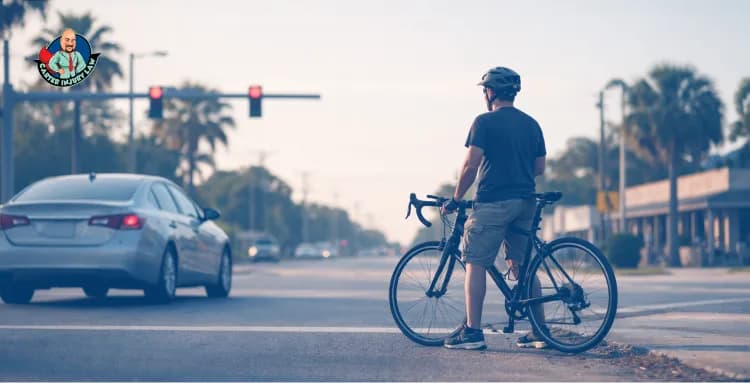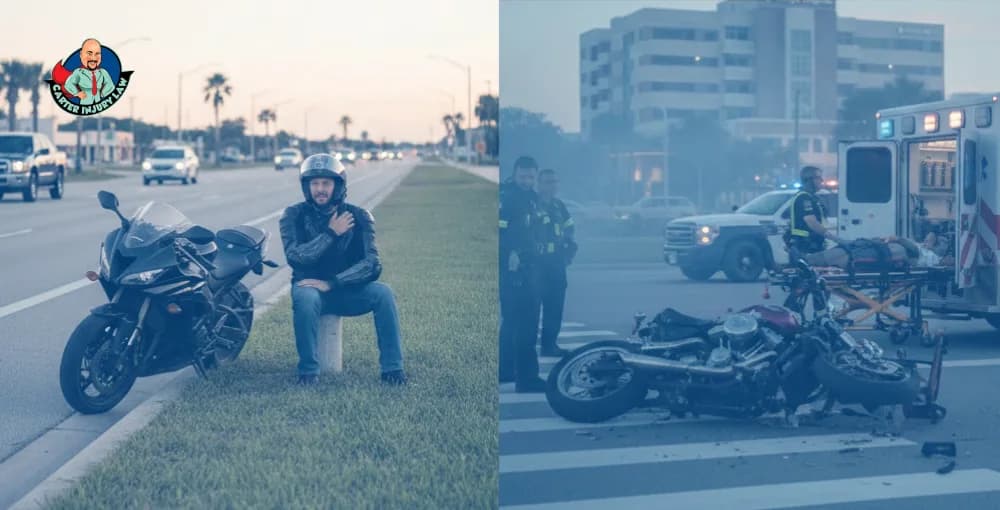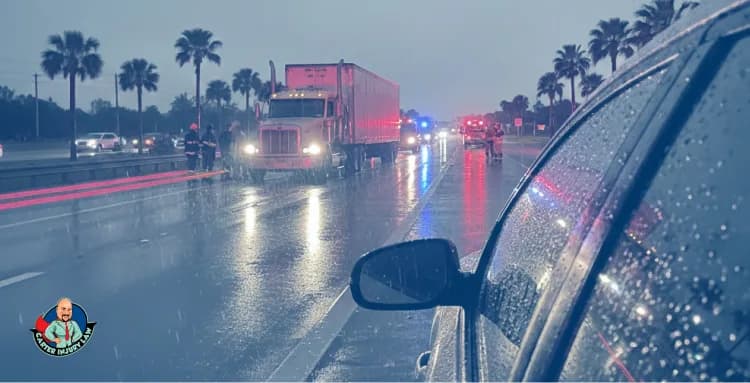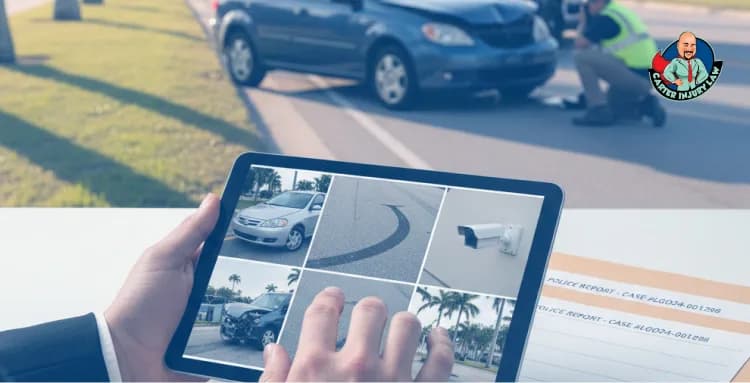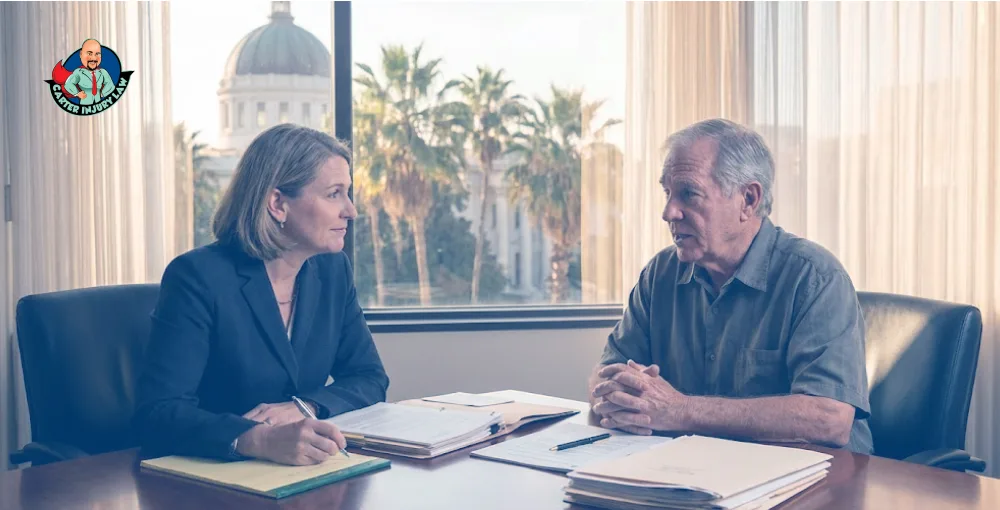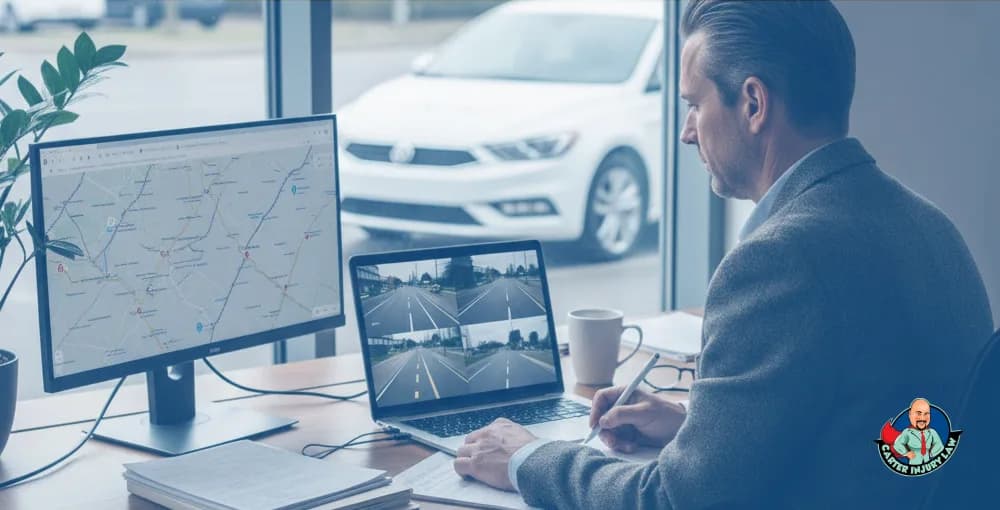When a delivery truck accident happens, the chaos doesn’t stop once the tow trucks leave. What follows is a second collision, this time with the insurance system. I’ve seen people walk into that system thinking it’s built to help them, only to find out that every friendly phone call, every quick form, and every “we’re just checking in” email hides a strategy designed to save the insurer money, not lives.
I’ve been an injury lawyer long enough to spot the patterns. The same mistakes appear again and again, and by the time most people find me, they’ve already signed or said something that cuts into the compensation they deserve. It’s not their fault, really. The process is built to confuse you. However, once you understand where those traps are, you start to see how the whole game is played.
(1) Trusting Insurance Companies Too Early
The first call after a crash often feels like relief. A calm voice on the other end saying they’ll “handle everything” sounds like someone finally showing up to help. I’ve watched clients cling to that voice the way a shipwrecked sailor clings to driftwood. The problem is that voice doesn’t work for you; it works for the insurance company.
Insurance adjusters are trained to sound like your friend while collecting details they can later use to shrink your claim. I’ve seen it too many times. Someone tells the adjuster they’re “doing okay” out of politeness, and weeks later that line becomes proof that their injuries weren’t serious. It’s like walking into a poker game without realizing everyone else already knows your cards.
Think about it like the movie The Matrix. When you’re plugged in, you think the world around you is real, that you’re in control. Then you start to see the code running behind it all, the small print, the polite questions, the strategically timed calls. Once you see it, you can’t unsee it. That’s where I come in. My job is to pull people out of the illusion before the system rewrites their story.
If you remember nothing else, remember to not talk to the insurance company before you understand the rules of the game. Because in this one, silence can protect you more than words.
(2) Thinking Florida’s “No-Fault” System Has You Covered
Florida’s no-fault insurance sounds like a lifeline, but in practice, it’s more like a patchwork quilt full of loose threads. Personal Injury Protection, or PIP, is supposed to cover your medical bills after an accident no matter who caused it. What people don’t realize is how quickly that protection collapses when you don’t play by the system’s hidden rules.
I’ve had clients come in shocked to learn their medical bills aren’t being paid because they waited too long to see a doctor. Under Florida law, you have 14 days to get medical care after a crash, or your PIP coverage can shrink to almost nothing. Fourteen days sounds like plenty, until the pain creeps in on day fifteen. Then it’s gone, and so is your coverage.
PIP also caps what it pays. Ten thousand dollars might sound like a lot, but if you’ve ever spent a night in a hospital, you know how fast that number disappears. The rest comes out of your pocket unless you step outside the no-fault system and hold the at-fault party accountable.
People think no-fault means no fight, but it’s usually the opposite. The fight just moves behind the curtain, buried in fine print and deadlines. It’s like realizing your seatbelt works only if you buckle it the exact right way at the exact right moment. The law gives you that window, but it doesn’t forgive you for missing it.
(3) That First Settlement Offer Isn’t What It Seems
Right after a crash, the first offer always comes dressed as mercy. The adjuster talks about how they want to help you move forward and how they understand what you’re going through. They offer a check that looks like a life raft in a storm of bills, repairs, and missed work. I get it. I’ve watched people reach for it, thinking it's a rescue. However, it’s not a rescue; it's a strategy.
Early settlements are built on panic. Insurance companies know you’re scared, tired, and just want normal life back. That’s when they move in. The problem is, those first numbers never include the surgeries, the therapy, and the weeks you’ll lose trying to get your body and your job back on track. Once you sign, there’s no reopening the file, no “I didn’t know.”
I once handled a case where a client had accepted a quick settlement before coming to me. A few months later, her back injury worsened, and the treatment cost more than the check she’d already cashed. The insurance company didn’t break any laws. They simply counted on her not knowing what her future would cost.
It reminds me of those old video games where you pick the treasure chest that shines the brightest, only to find it’s empty inside. The real value takes patience, and patience is the one thing insurance companies hope you’ll run out of first.
(4) When the Blame Game Turns Against You
Here’s where things start to twist. Florida’s comparative fault rule sounds simple, you can still recover damages even if you share some blame for the accident. However, simplicity is a mask. The moment the insurance company can convince a jury that you were more than 50% responsible, your right to compensation disappears entirely. Gone, like it never existed.
What most people don’t see is how subtly fault gets shifted. It rarely comes as an accusation. It sneaks up on us, hidden in questions that sound harmless:
“Were you sure you saw the truck before changing lanes?”
“Could you have slowed down sooner?”
“Was the light yellow or red when you entered the intersection?”
Each question is a thread tugging at your case. One small admission and the story changes. You become the careless driver instead of the injured victim. I’ve sat in depositions where a single word tilted the whole balance of a claim.
Comparative fault is mainly about persuasion. The insurance lawyers will frame the scene like a movie where you’re the unreliable narrator. My job is to pull the camera back to show the weight of the truck, the driver’s schedule, and the company policies that put speed over safety.
If you’ve ever watched a courtroom scene in a film and thought, “That twist came out of nowhere,” you already understand how fault works in these cases. It’s not about what happened, it’s about how convincingly someone else can rewrite it.
(5) The Trouble of Commercial Insurance
Most people picture one insurance company handling everything after a crash. With delivery trucks, it’s never that simple. You’re not facing only one insurer, you’re walking into a maze full of them, each guarding its own piece of the payout. There’s the policy for the driver, one for the trucking company, another for the cargo, and sometimes a separate one for the trailer. Everyone points fingers while you sit waiting for answers.
I’ve seen cases where weeks were wasted just figuring out which company was actually responsible for paying the bills. Meanwhile, medical costs pile up and time ticks away. Each insurance company has its own adjusters, its own lawyers, and its own policies that are written to protect itself first. You can’t assume that because one carrier accepts fault, the others will follow.
It’s a bit like dealing with the big movie studios. Each one owns a piece of the rights, and no film gets made until everyone agrees. The difference is, in this story, you’re getting bills instead of popcorn.
When I take on a case like this, my first move isn’t dramatic. It’s detective work. Finding every policy, reading every exclusion, tracing every layer of coverage. Because until you know who’s holding the money, you’re arguing in the dark. And that’s exactly how the system likes it.
(6) What It Really Means When I Say “We Don’t Get Paid Unless You Do”
By the time most people come to me, they’ve already tried to handle the insurance battle on their own. They’ve filled out forms, waited for calls, maybe even trusted promises that someone was “reviewing” their claim. What they didn’t realize is that the clock never stops ticking.
In Florida, you only have 2 years from the date of the crash to file a personal injury lawsuit. Two years sounds generous, until you’re six months in, buried under paperwork, still waiting for a fair offer that never comes.
What I tell every client is that we work on a contingency fee basis. That means you don’t pay anything unless we win. No retainers, no hourly bills showing up in your mailbox while you’re trying to heal.
And make no mistake, it is a fight. Insurance companies bet on exhaustion. They know how to drain time and how to stretch patience until people settle for less. My job is to make sure you don’t have to.
I can’t promise the process will be easy, but I can promise that you’ll never have to wonder whose side I’m on. I’ve seen how quickly a delivery truck crash can turn someone’s life upside down, and I’ve seen what happens when they finally get a fair shot at justice. That moment is what keeps me doing this work.



